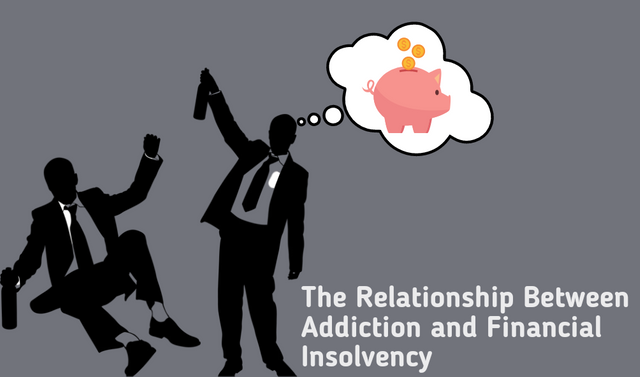Spend Rather Save? - The Relationship Between Addiction and Financial Insolvency

If you live in Nigeria (my country), you will understand how aggravating it may be to spend money on internet data. Consider paying $2 (Approx 8 STEEM) every two days on data; that's $14 (Approx 56 STEEM) per week and $60 (Approx 240 STEEM) per month, which is inconvenient because data isn't always enough. The internet is incredibly important in our lives; it's something we can't live without; all we need is access to it. Nigeria is one of the few countries where you can renew your monthly internet subscription four (4) times a month because data rate is constantly limited. Most individuals, particularly students, constantly lament how much money they could have saved if they hadn't subscribed to internet data.
This is similar to how people criticise alcoholics for spending a lot of money on alcohol and then turn into financial advisors. Giving people specifics on how much money they would have made if they had stopped drinking alcohol, but the irony is that the individuals giving this advice don't drink at all. So, how much money have they saved as a result of not drinking?
All of this is psychological, and the way people handle money is psychological as well. People presume that people are impoverished because they want to spend their money on their guilty pleasures rather than investing it. But what about those who don't have a guilty pleasure that they can spend money on? Have they been able to save a significant amount of money?
Do you believe, however, that you can have a guilty pleasure, spend money on it, and still invest and generate more money while abusing alcohol? It's all in our heads; we spend a lot of money on meals yet can still afford to put money into other things.
You simply must be incredibly concentrated and self-disciplined in order to achieve whatever you desire, regardless of your guilty pleasure.
If you believe that spending money on your guilty pleasure is the reason you are poor or broke, and you stop spending money on your guilty pleasure, or rather quit your guilty pleasure, you will find that little will change in your life because the money will be diverted elsewhere for spending. Unless you learn to make more, because even if you decide to shift your spending to something else, your attention will be drawn to it.
For example, if you decide to start saving or investing money that you previously spent on alcohol, your attention will be so concentrated on the money that you will find yourself reaching for it anytime you feel even the tiniest need for it. Because it's all psychological, financial professionals utilize the alcohol concept all the time without clarifying why.
